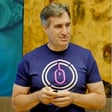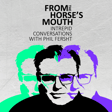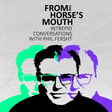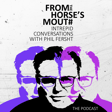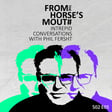
Dana Daher: Reclaiming Human Thinking in the Age of AI Shortcuts
Are we outsourcing too much of our thinking to AI?
In this thought-provoking episode, Phil Fersht sits down with HFS’s own Dana Daher, a trained anthropologist and research leader, to talk about how GenAI is subtly reshaping how we think, work, and show up.
Dana explores the idea of cognitive erosion—what happens when we rely so heavily on GenAI that we stop building our own creative, critical, and strategic muscles. She explains why this matters now, especially for the next generation of workers, and how leaders can protect what makes us uniquely human.
This isn’t about resisting technology—it’s about learning how to use it without losing ourselves.
What You’ll Hear in 30 Minutes
1. The concept of cognitive erosion—and how it’s different from burnout
2. Why younger employees may miss critical thinking milestones if they over-rely on GenAI
3. How "co-creating with machines" can end up making everything sound the same
4. The importance of cognitive resilience as a leadership capability
5. The risk of workplace homogeneity in a world of AI-written everything
6. How to balance efficiency with authenticity in the age of digital assistants
Guest Snapshots
Dana Daher is Executive Research Leader at HFS Research, where she blends her background in anthropology and IT to lead research across employee experience, agentic AI, DEI, and sustainability. Before HFS, she held leadership roles at Unisys and Info-Tech Research Group, helping public and private sector clients shape their digital transformation journeys. Dana holds both bachelor's and master's degrees in Anthropology from University College London, bringing a deeply human lens to technology’s impact on business and society.
Timestamps
00:00 – Welcome: Dana Daher and the Anthropology of Enterprise
02:54 – What Anthropology Teaches Us About Tech Culture
06:04 – What Is Cognitive Erosion and Why It Matters
07:48 – Three Waves of Cognitive Offloading: From Google to GenAI
09:16 – How AI Affects Judgment, Creativity, and Critical Thinking
12:04 – Offloading Opinions vs. Gaining Insight: The Thin Line
13:27 – AI’s Role in Creating a Sea of Generic Content
16:17 – Teaching Cognitive Resilience in the AI Era
18:07 – The Next Workforce Crisis: When Juniors Are Skipped for AI
21:03 – Is the Soul of the Workplace at Risk?
23:09 – Can AI Drive Us Back to Human Connection?
25:30 – Tech Efficiency vs. Human Cost: Finding Balance
26:52 – Closing Thoughts: Retaining Originality in a Machine World
Explore More
🌐Dana’s Research on Cognitive Erosion: https://www.hfsresearch.com/analyst/dana-daher
🌐Learn more about Agentic AI at HFS: https://www.hfsresearch.com
🔗 Follow Dana Daher: https://www.linkedin.com/in/dana-daher/
🔗 Follow Phil Fersht: https://www.linkedin.com/in/pfersht/

